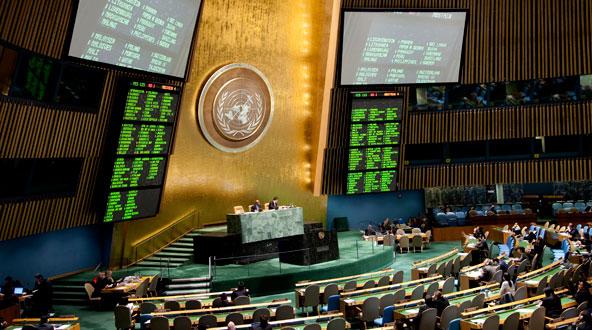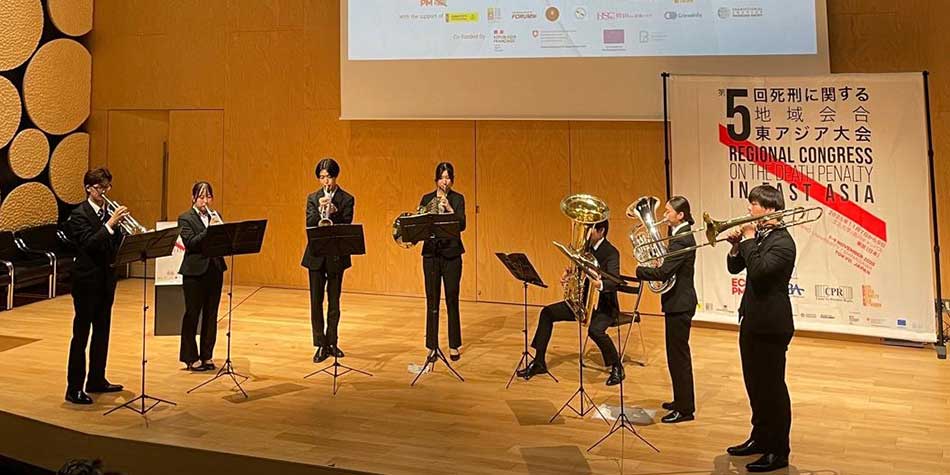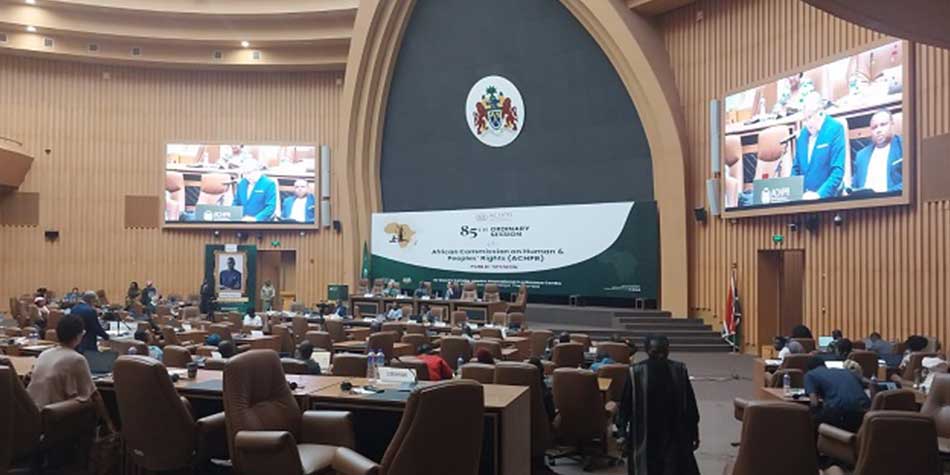
How to work with international bodies?
Since 2007, successive UN General Assembly resolutions calling for a moratorium on executions have established the death penalty as an issue of international law and human rights. Yet this is not the only opportunity for interaction between abolitionist groups and international organisations.
The death penalty being not just a matter of national law but also an issue of human rights protection opens multiple avenues for civil society to submit reports about it to UN human rights bodies.
Human Rights Council (3 sessions a year)
The Human Rights Council is a UN inter-governmental body responsible for strengthening the promotion and protection of human rights around the world. The Council may address the death penalty on several occasions:
– when debating the annual report of the Secretary General on the death penalty. Civil society can feed the report by submitting inputs by the end of March;
– when adopting Universal Periodic Review reports on retentionist countries (see below);
– when debating and adopting reports by the special rapporteurs on torture and on extrajudicial, summary or arbitrary executions. The special rapporteurs rely heavily on information from civil society.
Universal Periodic Review (3 sessions a year)
The Universal Periodic Review (UPR) is a unique process through which the Human Rights Council reviews the human rights records of all 193 UN member states once every four years.
Civil society can act in several ways:
– submit information to the Office of the High Commissioner for Human Rights (OHCHR) for the stakeholders report, a 10-page summary of comments by a wide range of observers;
– participate in national consultations held by the state under review in order to compile its national report or encourage the state to hold such consultations;
– approach other states and encourage them to make specific recommendations and to ask certain questions during the UPR.
Human Rights Committee (3 sessions a year)
The UN Human Rights Committee is the body of independent experts that monitors the implementation and interpretation of the International Covenant on Civil and Political Rights (ICCPR) and its two optional Protocols.
The Committee seeks information from civil society on all areas covered by the ICCPR. It is especially interested in receiving information on those issues that the state report does not cover in sufficient detail.
NGOs may attend the Committee sessions at which State reports are under review as observers as long as they apply to the secretariat for accreditation, but they may not speak during state reviews.
Committee Against Torture (2 sessions a year)
The UN Committee against Torture is the treaty body of 10 independent experts that monitors the Convention against Torture and Other Cruel, Inhuman or Degrading Treatment or Punishment.
The Committee receives information from NGOs at different stages of the reporting process and meets with them before examining state reports.
The implementation of those bodies’ recommendations is both the most important and the most challenging part of the process. There are several ways for NGOs to be involved in the follow-up.
National NGOs can inform local public opinion about the recommendations accepted by the state and its commitments in front of UN bodies, for example through press releases.
To encourage their implementation, NGOs can then promote a national dialogue on the recommendations and lobby the authorities to ensure that concrete steps are taken.
Civil society may also raise the death penalty issue by submitting information to OHCHR to feed the Secretary General’s report on the death penalty presented before the UN General Assembly every two years.
The UN Office on Drugs and Crime collects information, including from NGOs, for the report of the Secretary General on capital punishment and implementation of the safeguards guaranteeing protection of the rights of those facing the death penalty. The report is presented to the Commission on Crime Prevention and Criminal Justice every five years (next in 2015).
The UN’s Economic and Social Council (ECOSOC)’s annual session may also discuss the death penalty and NGOs with ECOSOC observer status can participate in the work of this body.
Finally, NGOs should encourage other UN departments such as the UN Development Programme or the Department of Peacekeeping Operations to address the issue of the death penalty when dealing with justice and security sectors reforms.
At the regional level, civil society can use several mechanisms.
African Union
NGOs can address the African Commission for Human and People’s Rights (two sessions a year) and provide information for the report of the Working Group on the Death Penalty. They can also submit shadow reports on the three countries reviewed at each session.
Organisation of American States
The Inter-American Commission on Human Rights and the Inter-American Court of Human Rights, both of which are organs of the Organisation of American States (OAS), are responsible for overseeing compliance with the American Convention on Human Rights. Sessions of the Commission are closed to the public but both NGOs and individuals can request a hearing, which takes place alongside the session.
Any individual, group of people, or NGO legally recognized in at least one OAS member state may file a petition in cases of violations of human rights. The Inter American commission has recently been more active on the death penalty.
Council of Europe
The Parliamentary Assembly of the Council of Europe continues to monitor the capital punishment issue although all its member states have abolished it. It conducts a dialogue on a range of issues including the death penalty with membership candidate Belarus and has extended its action to countries enjoying observer status with the Council, such as Japan and the United States. The CoE has a special rapporteur on the death penalty.
European Union
The main channel of collaboration between the EU and civil society on the death penalty is linked to funding provided by the European Commission for anti death penalty work.
The European External Action Service has a focal point on the death penalty and NGOs can work with that person to provide information and influence EU policies on this issue.
Organisation for Security and Cooperation in Europe
The Office for Democratic Institutions and Human Rights (OSCE-ODIHR) meets once a year and produces an annual publication entitled The Death Penalty in the OSCE Area, which is usually released at the OSCE Human Dimension Implementation Meeting. This is intended to provide a comparative overview of the use of the death penalty throughout the OSCE region on the basis of information provided by the participating states themselves. NGO can submit information to the ODIHR and participate in the OSCE Human Dimension Implementation Meeting.







